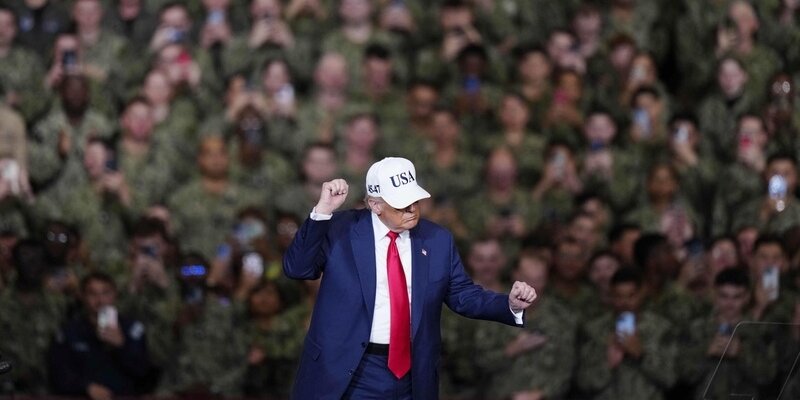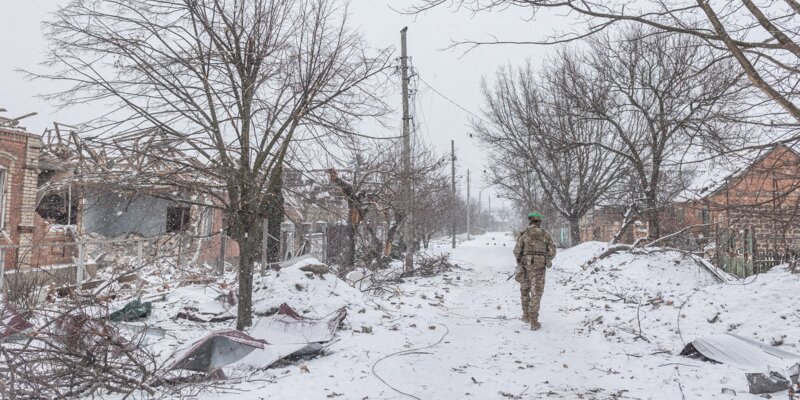The Disappearance of Israel’s National Security Council
It is supposed to be the most important political-security body working alongside the prime minister, to coordinate the work of the security cabinet, to present alternatives and to bolster Israel’s strategic decision-making. In practice – and precisely during almost two years of war – the NSC, under the leadership of Tzachi Hanegbi, has become utterly inconsequential. The vacuum is being filled by other functionaries, external organizations and former officials. A special Shomrim report, also published in the N12 Magazine
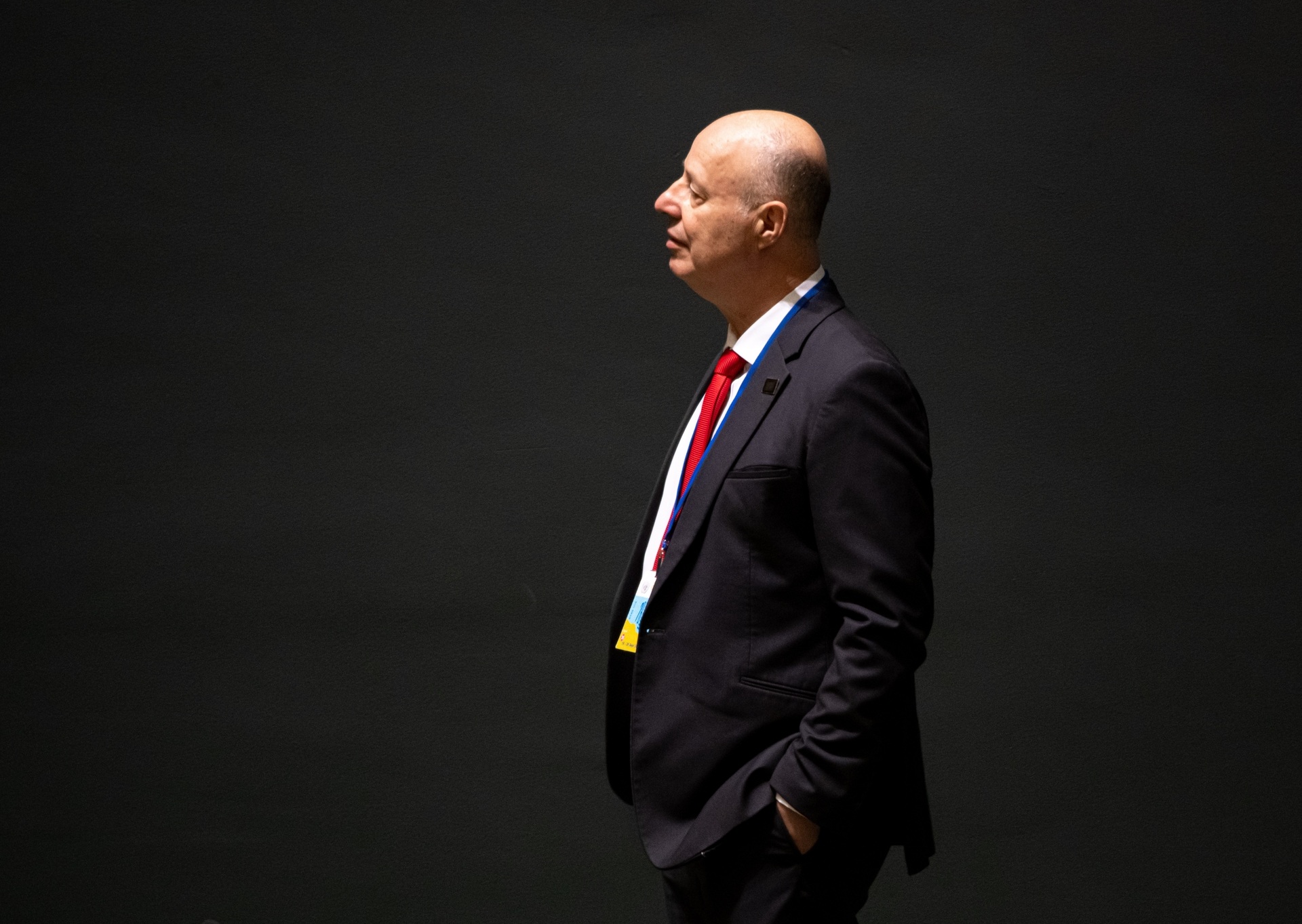

It is supposed to be the most important political-security body working alongside the prime minister, to coordinate the work of the security cabinet, to present alternatives and to bolster Israel’s strategic decision-making. In practice – and precisely during almost two years of war – the NSC, under the leadership of Tzachi Hanegbi, has become utterly inconsequential. The vacuum is being filled by other functionaries, external organizations and former officials. A special Shomrim report, also published in the N12 Magazine

It is supposed to be the most important political-security body working alongside the prime minister, to coordinate the work of the security cabinet, to present alternatives and to bolster Israel’s strategic decision-making. In practice – and precisely during almost two years of war – the NSC, under the leadership of Tzachi Hanegbi, has become utterly inconsequential. The vacuum is being filled by other functionaries, external organizations and former officials. A special Shomrim report, also published in the N12 Magazine
National Security Council chief Tzachi Hanegbi. Photo: Shutterstock

Shuki Sadeh
August 21, 2025
Summary


Listen to a Dynamic Summary of the Article
Created using NotebookLM AI tool
In May 2024, more than six months after the outbreak of the October 7 war, the IDF captured Rafah and the Philadelphi Route in the southern Gaza Strip. Four months later, Prime Minister Benjamin Netanyahu gave a speech in which he spoke about the strategic importance of the Philadelphi Route – “Hamas’ oxygen supply,” he called it – and said that lack of Israeli control over the narrow strip of land was preventing the government reaching a hostage deal. Even at the time, however, it was unclear why the Philadelphi Route was seen as such an important target for the IDF. For many months beforehand, the National Security Council (NSC) had been recommending that the military capture it. “A month or so after the start of the war, we presented a proposal which suggested that Israel should start by capturing Rafah and the Philadelphi Route, in an effort to create some kind of stranglehold over Hamas. The proposal was presented to NSC chairman Tzachi Hanegbi and was relayed to Ron Dermer, the strategic affairs minister. Senior members of the IDF were also shown the proposal,” one source who was present at the discussions tells Shomrim.
At the start of the Israeli military campaign in Gaza, the IDF’s strategy was to move the population of Gaza southward toward Al-Mawasi. The source who spoke to Shomrim adds that, at the start of the war, various security officials, including cabinet ministers, sought to relocate as many Gazans as possible toward the enclave’s southern border, in the hope that this would encourage Egypt to open its border and allow Palestinian refugees into its territory. Indeed, in the first weeks of the war, Gila Gamliel – who served at the time as Israel’s intelligence minister – explicitly called for Gazans to be expelled to the Sinai.
The NSC opposed any such proposal. “Within the National Security Council, we knew that no matter what – even if the earth were to become the sky, as they say in Arabic – the Egyptians would never agree to that,” the same source added. “We know the Egyptians well. The NSC has been in constant contact with the relevant bodies in Cairo for many years, so we understand that it was an illogical proposal.”
The NSC, which was established in order to improve Israel’s decision-making process on matters of diplomacy and security, has been noticeably absent from this current war – a conflict that has seen and will continue to see critical strategic junctures. This is despite the fact that, after its weaknesses and shortcomings were exposed by certain events and subsequent reports, the NSC should be far stronger now than in the past. For example, the Winograd Report into the Second Lebanon War was highly critical of the NSC’s performance (at the time it was known by a different Hebrew name but, confusingly, the same acronym) during the 34-day conflict.
Later reports written by the State Comptroller in 2012 and 2017 were also critical of the NSC. The former, written by Micha Lindenstrauss, dealt with Israel’s handling of the Mavi Marmara flotilla to Gaza while the second addressed cabinet discussions during Operation Protective Edge in Gaza. Both of them state in no uncertain terms that the NSC did not do its job. A subcommittee of the Knesset’s Foreign Affairs and Defense Committee also criticized the NSC in its 2017 report, saying that the body did not have any influence in planning discussions over the IDF’s next five-year plan.
“There are rumors that the NSC still exists, but I haven’t seen any signs of its influence anywhere. I saw a sign saying, ‘Head of NSC,’ but there was no groundwork. There were meetings with ministers from the inner cabinet with heads of the [security] branches, which are important discussions – but they were few and far between,” said former minister, cabinet member and IDF chief of staff Gadi Eisenkot – who left the Netanyahu government in June 2024 – when asked to describe how the NSC functions.
Eisenkot made these scathing comments during a speech in November 2024 at a conference organized by the Israel Democracy Institute. Some two weeks later, at a meeting of the Knesset’s State Control Committee, Eisenkot added: “There are some excellent people [working] at the NSC. But the NSC is absent from the strategic reality of the State of Israel. I saw the efforts made, but I didn’t see even one iota of influence.”
At the same meeting, former minister Chili Tropper — who belonged to the same party as Eisenkot — commended the National Security Council (NSC) for providing timely updates to the cabinet and for its efforts to share information. Substantively, however, he echoed the former army chief’s criticism. Addressing Ran Peled, head of the NSC’s Intelligence and Ministerial Committees Division, who was present at the discussion, Tropper said: “There have been very few — if any — strategic discussions in the cabinet. Perhaps you genuinely wanted there to be, but unfortunately, there were almost no evaluations of status versus objectives, despite the fact that we requested them more than once. What we hoped for was a broad strategic overview across all fronts. What we received, instead, was far too operational in nature. To be fair, I want to stress: this wasn’t your fault. We can all speculate about where the blame lies. But yes, it needs to be said.”
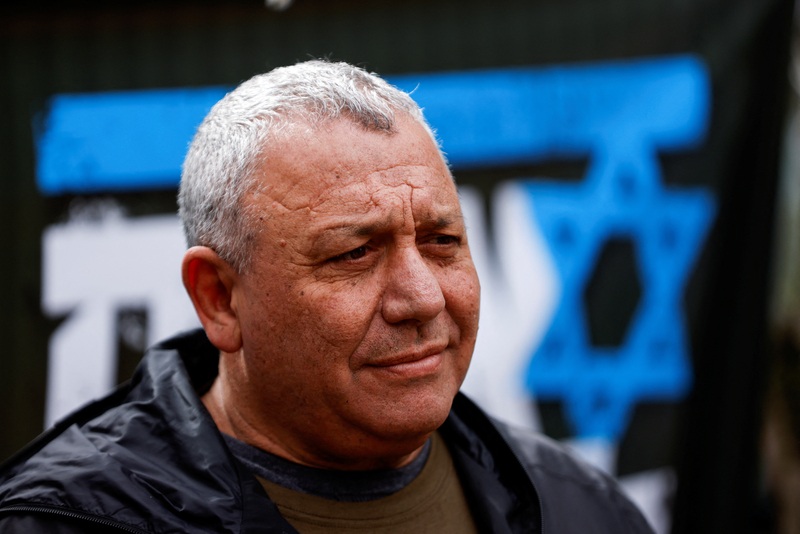
In May 2024, some seven months into the war, Dr. Yoram Hemo stepped down from his position as Hanegbi’s deputy at the NSC. According to a report on Channel 12 News, Hemo’s 10-page resignation letter included comments which still ring true today, more than a year later: “Failing to appoint an alternative government for the short term makes it difficult to hold off Hamas’ attempt to remain in power. These circumstances could force Israel to impose its control over Gaza, including possible military rule. The challenge of military rule in the long term could bring Hamas back to power […] Without a speedy solution, especially if the massive military moves in Gaza are ended, there is grave concern that the issue of the hostages could turn into a years-long one.”
According to the Channel 12 report, after sending the document, Hemo presented its main points to the security cabinet. During the discussion, his soon-to-be ex-boss Hanegbi insisted that the contents did not represent the position of the NSC, but of Hemo alone. One official who was present later said: “There were other NSC officials involved in writing that document, but I believe that Hanegbi got cold feet because of the content, which he knew that Netanyahu would not look kindly on, so he distanced himself from it. At least there was an effort to create some kind of forward-thinking strategy, which is exactly what NSC's work was missing throughout the course of the war. It’s fine to disagree with ideas, but – astonishingly – that discussion never even took place.”
In addition to Hemo, two other senior NSC officials left their positions recently. One of them is Nimrod Gez, the head of the Middle East, Africa and Special Liaisons Division; according to Shomrim’s research, his departure was primarily because of personal reasons. The other was Rafi Meron, the head of the Technology and Special Issues Division. After Gez’s resignation, the Middle East Division was merged with the Foreign Police Division, which is led by Yosef Drenzin, who, in 2017, served as director general of the Ministry for Regional Cooperation under Hanegbi.
Hanegbi himself has been absent from work for an extended period. No official explanation was offered, apart from a laconic statement in September 2024, stating that he would be undergoing medical treatment and would be out of office for several weeks. In practice, however, he was missing for several months. During that time, the NSC was represented at meetings with ministers by Hanegbi’s deputy, Gil Reich, and it does not appear that the organization suffered too much in the boss’s absence.
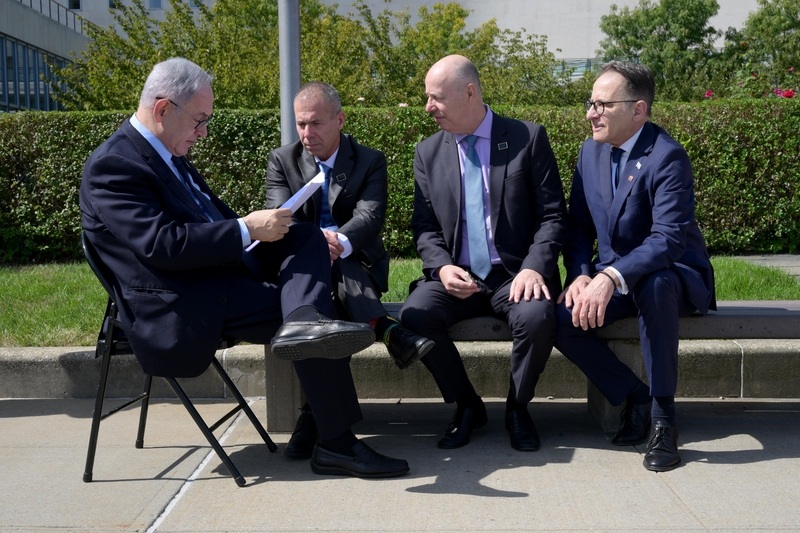
“In recent years, Bibi has enfeebled the NSC and is not using it right. It seems that he does not hold a very high opinion of the organization," says Prof. Uzi Arad, who served as NSC head under Netanyahu
‘Under Netanyahu, there has been absolute atrophy’
The National Security Council was established by Netanyahu at the end of his first stint as prime minister in 1999. The goal was to set up a body composed of experts in foreign policy and security, to act as a counterweight to the IDF and the other security organizations. However, it seems evident that the NSC never successfully fulfilled that vision.
Just a few years later, one of the key recommendations of the abovementioned commission of inquiry into the Second Lebanon War, chaired by retired Justice Eliyahu Winograd, was that the government should bolster the powers and influence of the NSC. This led to the establishment of a steering committee, headed by former IDF chief Amnon Lipkin-Shahak, which eventually produced the 2008 National Security Council Law, which included 11 clauses. Among the stipulations of the new law was that the NSC would be responsible for coordinating the work of the security cabinet and preparing material ahead of its meetings. Similarly, the law stipulates that the NSC is responsible for preparing and presenting various alternatives to the cabinet before any decision is taken, as well as offering its detailed recommendations as to the best alternative.
The most recent meeting of Netanyahu’s security cabinet, at which it was decided that the IDF would be instructed to capture Gaza City, is a prime example of how the law became a dead letter. Netanyahu asked the army to capture Gaza City and the IDF opposed the plan – yet it remains unclear why no alternative was offered and whether the NSC presented its reasoned recommendation before the discussion. Netanyahu, for his part, gave an interview to Fox News just hours before the cabinet convened, revealing that the decision had already been taken. Incidentally, this is not the first time during the course of the war that decisions have been unveiled before the cabinet even convened to approve them.

After the meeting, there were reports in the Israeli media that Hanegbi was actually opposed to the plan and supported the chief of staff’s position. However, the reports, which were based on leaks, do not make it clear whether this was Hanegbi’s personal view or the official position of the NSC. Hanegbi declined to answer questions that Shomrim submitted on the matter.
Another clause in the National Security Council Law determines that the head of the NSC will be directly answerable to the prime minister and will be defined as his national security advisor. Even if the lawmakers’ intentions were good, it appears that this clause is the root of the organization’s current weakness. This is because, in practice, the head of the NSC has become the prime minister’s personal emissary for various political missions – such as Hanegbi’s reported meeting with Syrian President Ahmed al-Sharaa in Abu Dhabi in July. Hanegbi’s predecessor also held meetings with senior officials in countries which do not have diplomatic relations with Israel – but these were vastly different kinds of missions.
In December 2015, then-NSC head Yossi Cohen appeared before the Knesset’s Finance Committee, where he argued that there were security interests involved in approving the state’s plan to develop the off-shore gas fields – at a time when the Mossad and the IDF espoused differing views. The goal was to bypass the position of Prof. David Gilo, who served as Director General of the Israeli Antitrust Authority and who argued that it was a restrictive arrangement. Independently, the day after his appearance before the Finance Committee, Cohen was finally appointed to the position he had long coveted – head of the Mossad. This highlighted his close relations with Netanyahu. Another example is Meir Ben-Shabbat, who served as NSC head after his tenure as deputy director of the Shin Bet, and who was sent by Netanyahu in 2018 to give Rabbi Chaim Druckman a security briefing. The goal was that Druckman – the spiritual leader of the national-religious camp – would persuade Naftali Bennett and Ayelet Shaked not to bring down Netanyahu’s government.

“The NSC head has become Netanyahu’s personal envoy, be that for good things or less good things,” says Ofer Shelah, head of the “Israel’s National Security Policy” research program at the Institute for National Security Studies. “Before Ben-Shabbat was appointed to the position, he asked to consult with me. At the time, I was a member of the Knesset’s Foreign Affairs and Defense Committee. I told him that there is an innate contradiction within the position, between being head of the National Security Council and being the prime minister’s personal envoy. He would have to choose one or the other, told him, and we both knew which way he would decide. Ben-Shabbat just nodded his head.”
According to Shelah, “the head of the NSC, according to the legal definition, is the person that must tell the prime minister, ‘You have to hold a discussion on issues that you really don’t feel like discussing.’ He has to oversee the processes that the prime minister carries out. People will opt to be the prime minister’s envoy, because that moves them closer to power, because in Israel no one really values the processes and because, in the Netanyahu era, everything is based on personal trust or suspicion. The NSC has never fulfilled its role, but, under Netanyahu, there has been absolute atrophy. The NSC has zero input in generating better decision-making processes on matters of diplomacy and security – which is its main function.”
Prof. Uzi Arad, who served as NSC head under Netanyahu between 2009 and 2011, wrote a book called “The NSC: The Struggle to Establish the National Security Council.” Speaking to Shomrim, Arad is just as forthright. “In recent years, Bibi has enfeebled the NSC and is not using it right,” he says. “He gives jobs that the NSC should do to other security bodies. It seems that he does not hold a very high opinion of the organization and sees its officials as his lackeys, asking them, for example, to write a paper saying why he should travel to a certain country next week. Israel’s contacts with other countries’ national security councils should be via our NSC. But that doesn’t happen; the person in contact with the American counterpart of our NSC is Dermer. This kind of thing undermines the work of the organization.”
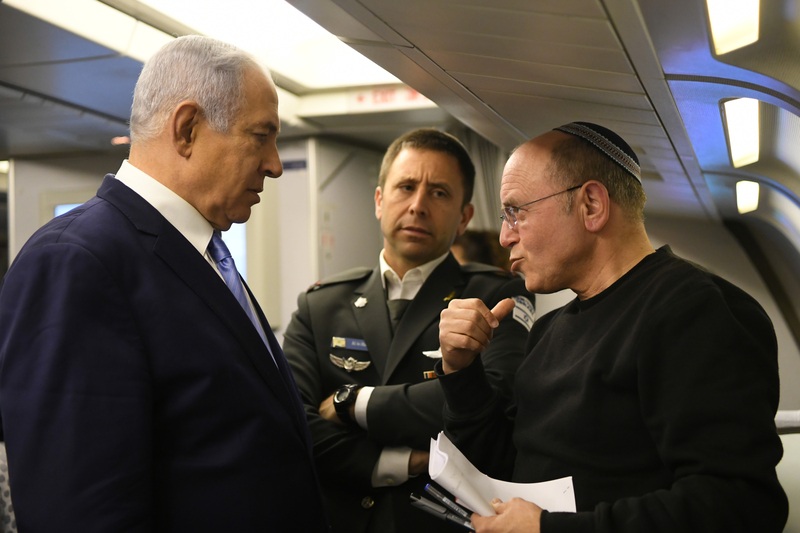
“There are rumors that the NSC still exists, but I haven’t seen any signs of its influence anywhere. I saw a sign saying, ‘Head of NSC,’ but there was no groundwork,” said former IDF chief of staff Gadi Eisenkot
The note from Sinwar and the NSC’s role in the ‘conception’
Dr. Roni Bart, who served as head of the Force Build-up Division at the NSC, testified to Netanyahu’s view of the organization when he addressed the Civilian Commission of Enquiry established to investigate the October 7 attacks. At a session of the commission dedicated to state comptroller reports about the NSC, Bart said: “Sometimes, they write things that are not classified in the report, but they are things they don’t want people to hear about. As far as I recall, there was at least a partial breakdown of the testimony that the prime minister himself gave to the comptroller’s review in the classified material. He told [the comptroller’s staff], and I am now quoting word-for-word: ‘I treat the NSC as if it were the Prime Minister’s Office’s small Ministry of Foreign Affairs’.”
Maj.-Gen. (res.) Giora Eiland, who was NSC chief between 2004 and 2006, told the same civilian commission about a different problematic element related to the overly close relationship between the head of the NSC and the prime minister. “What happened in Israel in the months before October 7 was that almost every issue that needed to be discussed was linked somehow to the judicial overhaul. And then the head of the NSC said, ‘It’s political so I won’t touch it’,” Eiland testified. “As a result, it was impossible to conduct a national-level assessment of the situation, which would have shown that there was a connection between intelligence warnings, the readiness of the IDF and the political crisis […] And when the head of the NSC says that he can’t deal with an issue because it’s ‘political,’ he leaves behind a massive vacuum […] If you are nothing but the prime minister’s envoy, at his beck and call, then your role has been shrunken to that of political advisor.”

Israel still has not established a state commission of inquiry, but the role of the NSC in terms of the ‘conception’ – the security doctrine prevalent among Israel’s defense establishment – that led to October 7 has already been examined at the civilian inquiry. That inquiry concluded that the NSC was part of the ‘conception’ since it did not challenge the policy of containment vis-à-vis Hamas. Ben-Shabbat was head of the organization when that politics was shaped – the quiet understanding that Hamas was busy building a civilian regime in the Gaza Strip and that Israel would not attack.
In an interview with Yedioth Ahronoth in April 2022, several months after he left the NSC, Ben-Shabbat even bragged about this policy. This was the interview in which he revealed that Hamas leader Yahya Sinwar sent the now infamous ‘calculated risk’ note to Netanyahu via Egypt. “That was one of the most beautiful moments in the process,” Ben-Shabbat said about receiving that note. Now, he believes that, of all the options that were on the table and given the internal and international lack of legitimacy for any preemptive Israeli military action against Hamas, reaching an agreement was the only reasonable option.
.jpg)
Incidentally, the potential power of the NSC was revealed through a crisis that was not from the realm of national security, when Netanyahu made the organization, under Ben-Shabbat’s leadership, responsible for Israel’s handling of the coronavirus pandemic in 2020. At the time, the move was widely criticized because of the NSC’s innate weakness, but, as one former senior army officer put it, “the National Security Council was a pleasant surprise during the pandemic. We were facing the kind of crisis that no one knows how to deal with, but, apart from that, I saw that the moment it got the backing of the prime minister, the NSC became a much more effective body.”
Then again, perhaps the coronavirus pandemic – an essentially civilian crisis – merely highlighted to what extent the defense establishment, and especially the IDF, is too strong a system that the NSC cannot really stand up to. According to one source who is familiar with the work of the NSC in the first months of the war, this is exactly what happened when it came time to formulate a military strategy for the Gaza Strip. “When the army came, in the aftermath of October 7, and started to plan the next moves – how to take control of Gaza and what to do with it – it was the IDF that set the tone. There was no mechanism that allowed a different vision to what the military was planning,” he says.
“The head of the NSC is also engaged in diplomatic missions for the prime minister – and that’s fine,” former Shin Bet director Yoram Cohen tells Shomrim. “But on weighty matters, matters of diplomacy and security, it is the NSC that is supposed to present a paper for discussion, not the IDF and not the Shin Bet. As an advisory body, it is the most important organization working alongside the prime minister. Is it the strongest? In some cases, no. Why? That depends on the prime minister, on the character of the head of the NSC and on the difficulties created by other organizations, which do not allow it to flourish.”
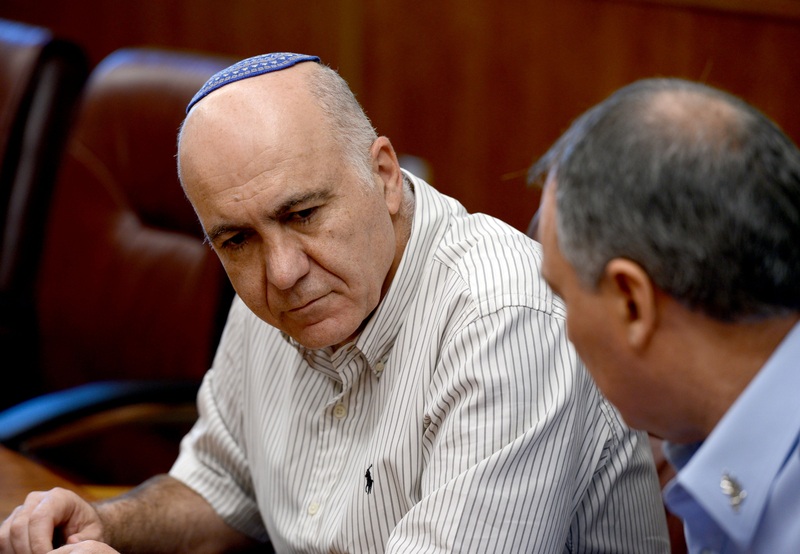
‘When there’s no NSC, there’s a vacuum’
Text: In the absence of a strong National Security Council, the vacuum that is created is filled by other players from within the government and from without. So, since the outbreak of the war, a series of NGOs, research institutions, academics and former officials of various kinds have presented their own proposals to Israeli decision-makers.
Based on conversations that Shomrim conducted with officials and experts, it appears that the person within the government who wields most power and who acts in place of the NSC is Ron Dermer, Israel’s strategic affairs minister, who is also head of the Israeli team negotiating for the release of the remaining hostages. “Dermer is Netanyahu’s strategic advisor and has been for many years; that’s true when he has an official position and when he doesn’t. He’s the go-to person. He’s the one Netanyahu consults with and trusts,” says Eran Etzion, a former deputy director of the NSC. Is that likely to change? Last week, Israel Hayom reported that Dermer is planning to retire from political life in the coming months.
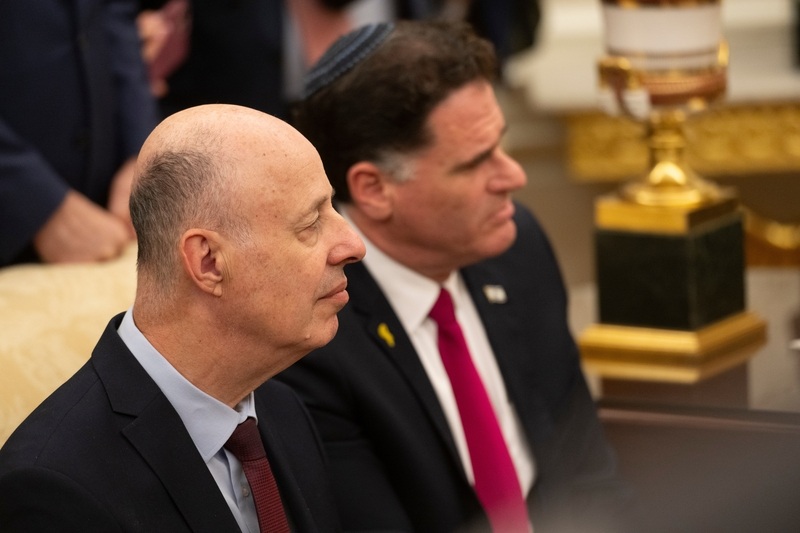
Another person whose influence has waxed during the war is Netanyahu’s military secretary, Maj.-Gen. Roman Gofman. Prior to being appointed to his position in May 2024, Gofman was an officer in the IDF’s District Coordination and Liaison in the Gaza Strip. As Netanyahu’s military secretary, his role is supposed to be coordinating between the IDF and the government. According to several sources who spoke to Shomrim, however, Gofman’s role is much wider. The sources claim that Gofman presents his own proposals to Netanyahu on various issues. This was also reported in a New York Times article about humanitarian aid for Gaza and there have been recent reports that he supports the full conquest of the Strip – even at the cost of the hostages’ lives. “This is absolutely not within the remit of Gofman’s position,” says Arad. “The prime minister’s military secretary is a liaison officer between the IDF and the intelligence community – and the prime minister. He is not a staff function – as has been pointed out in several reports.”
In addition to individuals, there are also several organizations that have filled the vacuum and now have the prime minister’s ear. Among them are the Mikveh Israel Forum, which was founded by tech investor Liran Tancman and Yotam Hacohen, a strategic consultant who is also the son of Maj.-Gen. (Res.) Gershon Hacohen – who himself is a senior member of Habithonistim, Israel’s Defense and Security Forum, which meets frequently with the prime minister.
Other proposals have come from the academy. In February 2024, for example, Prof. Danny Orbach and Prof. Netta Barak-Corren from the Hebrew University, Dr. Harel Chorev from Tel Aviv University and Dr. Nathaniel Palmer from Bar-Ilan University wrote a paper called “From a Murderous Regime to a Moderate Society,” in which they put forward their proposals for the future of the Gaza Strip and how to achieve this, based on historical experience from across the world, including places like Germany, Japan, Iraq and Afghanistan. Their independent research paper reached various decision-makers in government, as well as NSC officials. Hanegbi himself called it “brilliant,” but Shomrim discovered that no one at the NSC met with the four authors to see whether their proposal could be developed.
.jpg)
Other organizations which have presented the government with their ideas, proposals and working papers include Tachlith: The Institute for Israeli Policy, headed by attorney Yaniv Cohen, and MIND Israel, which was founded by Maj.-Gen. (Res.) Amos Yadlin. According to a report in the Washington Post, for example, Tachlith presented Israeli security officials with a document containing detailed plans for the practical distribution of humanitarian aid to the civilian population of Gaza – without Hamas’ involvement. The plans are remarkably similar to what would later be carried out by the American-backed Gaza Humanitarian Foundation. Members of MIND Israel, for their part, wrote a document for Eisenkot about “the day after” in the Gaza Strip, which he presented to the cabinet in March 2024, just before he resigned from the government.
“That, in my view, is the whole story: the moment there’s no NSC, there’s a vacuum – and it is filled by people from civil society, as happened with many things after October 7,” says Dr. Avner Golov, a former senior NSC officials, who is now Vice President of Research and Alliances at MIND Israel and who coauthored the document for Eisenkot. Up until October 7, MIND Israel was supposed to be something small, with more of a commercial direction. But we saw the vacuum and we said that money isn’t important. We decided to help our country, so we became a nonprofit. I’m sure there are plenty of other people who have done the same. My dream is for there to be a proper and functioning National Security Council. Today, unfortunately, I am doing the work that people tell me the NSC should be doing.”
The National Security Council, the Prime Minister’s Office and the office of Strategic Affairs Minister Ron Dermer did not respond to Shomrim’s request for comment.






